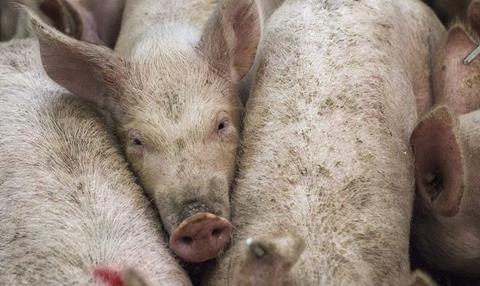Standard Pig Prices (SPP) remain “some way off” covering the estimated cost of production for many producers, leaving the industry in an “incredibly challenging situation”, says the Agriculture and Horticulture Development Board (AHDB).

In a statement, AHDB said GB finished pig prices have been rising since late March; however, the rate of increase has tailed off in recent weeks compared to earlier this year.
The EU-spec SPP for the week ending 10th of September?reached 199.93p/kg making the average for the four weeks ending 10th of September 198.98p/kg, which is 3p up from the average price for the previous four-week period.
According to AHDB, the EU-spec deadweight pig prices (APP) have been following the same trend and in the week ending 3rd September reached 202.79p/kg, bringing the four-week average to 201.71p/kg.
Deadweight pig prices are now significantly higher than the five-year average; however, inflation has driven up input costs for feed and energy.
Backlogs continue
AHDB said processors have been “struggling with issues” including staffing brought on by Brexit and the pandemic, which has reduced slaughter capacity and created a backlog of pigs.
With this in mind, carcase weights at the week ending 10th September saw an increase of 490g compared to the previous four weeks. Weights peaked at the end of January when they sat 10kg above the f-year average, due to the backlog. However, since then carcase weights have been gradually decreasing and are now sitting below the recorded weights from this time last year.
Impact on the pork sector
Defra figures show that the English breeding herd contracted 18% year-on-year as of June 2022, and AHDB anticipates there will be a 6% fall in pig meat production by the end of the year. This is weighted on a 15% drop in clean pig slaughter in the second half of the year.
ADHB said: “As winter draws closer and seasonal demand picks up, we will be looking closely at the impact on the pork sector, especially with potential CO2 shortages on the horizon.”
This story was originally published on a previous version of the Meat Management website and so there may be some missing images and formatting issues.












